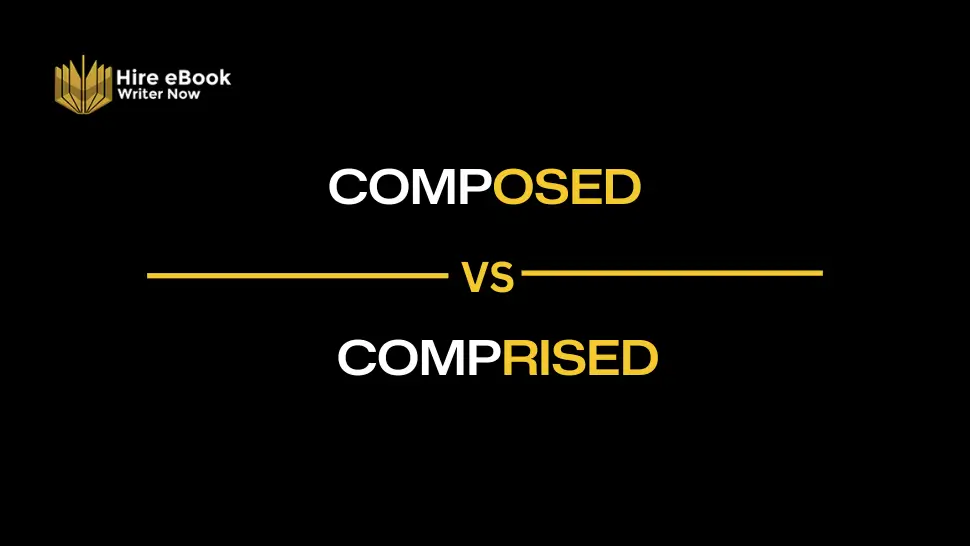When it comes to using composed vs comprised in our writing, understanding the distinction between these verbs is crucial. “Comprise” refers to what something is made up of, while “compose” also means “to be made up of” when used with “of” in the passive voice. Despite some common mix-ups, using “is/are comprised of” is generally incorrect, especially in formal settings.
Let’s consider some examples: A university comprises four colleges; similarly, those colleges are composed of various departments. Yet, saying the university “is comprised of” four colleges is incorrect. Many people might use it in casual conversation, which can lead to errors in more formal writing. By being precise with language, we enhance clarity and professionalism in our communication.
Is Using "Comprised Of" Correct?
The phrase “is/are comprised of” often pops up in both conversation and writing, but many grammarians consider it incorrect. They suggest opting for “comprises/comprise” instead. This simplifies the sentence and avoids unnecessary wording.
For instance, rather than saying, “The team is comprised of ten players,” we should say, “The team comprises ten players.” Similarly, “Our approach is comprised of several methods” can be restated as “Our approach comprises several methods.” This eliminates the passive structure and keeps sentences clear.
Alternatives like “is/are composed of” also work well and are grammatically sound. For example, “The committee is composed of three members” is correct, while “The committee composes three members” does not convey the same meaning.
Using tools such as grammar checkers can assist in selecting the right forms. This approach ensures clarity and precision in our writing while respecting established grammatical standards.
Made Up Of
When something is “made up of,” we often use phrases like “consist of” to describe its parts. For example, the test will consist of three sections. It’s similar to saying that something is “made up of” specific components. Our travel schedule mainly consisted of walks and visits to local attractions.
It’s important to note that we don’t use expressions like “comprise” or “consist of” in progressive verb forms. So, instead of saying “the products are consisting of organic ingredients,” we say “the products consist of organic ingredients.” This helps us convey what makes up an item or situation clearly and correctly.
Active Voice: Using between Composed vs Comprised
When expressing how parts make up a whole, we often choose between composed vs comprised.” In active voice, parts compose or make up the whole thing. For example, we can say, “The petals compose the flower.” On the other hand, when using “comprise,” the whole is made up of its parts: “The flower comprises petals.”
In daily conversations, we rarely use “compose” in the active voice. Normally, we prefer the passive voice—such as saying, “The team is composed of players” instead of “Players compose the team.” However, in formal writing or technical contexts, using “compose” actively can highlight new or complex information.
An example of this usage might be, “The artists compose this dynamic group,” or “Educated individuals compose a fraction of the workforce.” While not common, this approach can emphasize the parts’ role in creating something bigger. Deciding between these phrases helps us clearly convey how parts and wholes relate.
Common Questions About Using Composed vs Comprised
When we talk about creating or forming something, synonyms for compose are words like write, conceive, and design. When compose means “to make up” something, like in “The ten states form the country,” similar words are form and constitute. In passive voice, compose might be used as “the country is composed of ten states,” where it can be swapped with words like comprise and consist of.
Frequently Asked Questions
When we discuss a whole made up of different parts, “composed of” indicates the elements that form something. For example, a music band is composed of different musicians. On the other hand, “comprise” refers to how the whole includes the parts. Saying the team comprises five members means it includes them.
Using “comprised of” can be controversial. Traditionally, it was considered incorrect. However, language evolves, and its use has become more widespread. While some people still prefer avoiding it, many now see it as acceptable in casual contexts.
To illustrate correct usage: “The committee is composed of experts from various fields.” Here, “composed of” lists its parts. Alternatively, “The panel comprises ten experts” shows the entire group includes these members.
In AP style, “composed of” is favored. This preference is due to its clarity and the avoidance of potential misunderstandings that “comprised of” might cause. AP style emphasizes precise language usage.
To decide between “composed” and “comprised,” consider the sentence’s direction. If you are listing parts that make up the whole, “composed” fits best. If you emphasize the whole containing the parts, use “comprises.”
There are several alternatives to “composed of,” including “made up of,” “consisting of,” and “formed by.” These options can help vary language without altering meaning, ensuring accuracy and clarity.


